
Edit Buzás
Semmelweis University
Hungary
EMBO Practical Course
Registration is not yet open for this event. If you are interested in receiving more information please register your interest.
The extracellular vesicle (EV) research field is still growing with many researchers entering the field with a continued strength of demand for such specialized training. As research progresses, it becomes clear that EV’s regulate an increasing number of (Patho)physiological processes and are harnessed in a variety of biomedical applications.
Appropriate methodologies to prepare and characterize EV from biofluids are key to understanding the mechanisms that regulate their formation, composition and function. Given the large number of methods used, it is particularly important to provide practical hands-on training to new researchers covering the possibilities and limitations of the most widely used methods. This course will deliver such state-of-the-art training to participants, particularly those entering the field, and enable them to select the methodology which best fits their research question .
This course is intended for PhD students and Postdoctoral researchers who are entering or are already active in the field of EV research, and are interested in learning how to work with extracellular vesicles and know more about their biomedical applications.
In this course we intend to make PhD students and post-doctoral researchers familiar with good-practice-guidelines and methods for purification and identification of extracellular vesicles with practical sessions included.
“This course was very informative and covers all the major aspects of EV research. It addresses questions of what level of quality is required for good publications but also offers relevant approaches towards analysing data and critical thinking in the EV field. Whether you are taking your first steps in this field or more experienced, this course applies to you.” – Dr. Berglind Eva Benediktsdóttir, University of Iceland, Iceland
“My research is focused on understanding the role of exosomes in the progression of glioblastoma. While working on exosome-mediated regulation of angiogenesis in glioblastoma, I found significant difficulties in getting a pure population of exosomes as it is often contaminated with other biomolecules. As a result, we were in delusion whether the data which we were getting was the effect of exosomes or other biomolecules. Fortunately, I found the EMBO Practical Course on extracellular vesicles, focusing on the isolation and purification of extracellular vesicles, which was extremely important for my research work. We were trained to use cutting-edge research tools for extracellular vesicles and learned bioinformatic analysis of biomolecules that are present in exosomes. I also got an opportunity to interact with world-leading researchers and discuss my research. ” – Abir Mondal, National Centre for Cell Science, India
This event has been granted the following EMBO sustainability badge:


Semmelweis University
Hungary

Ghent University
Belgium
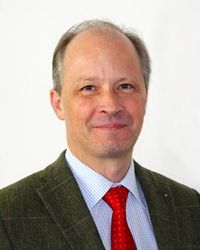
Paracelsus Medical University
Austria
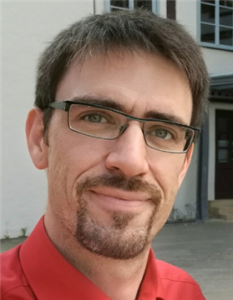
Karolinska Institutet
Sweden
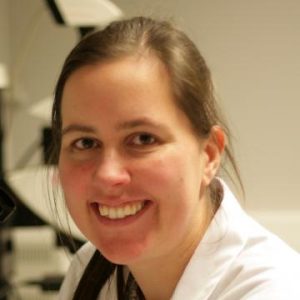
Ghent University
Belgium

University of Gothenburg
Sweden
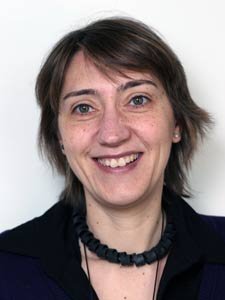
Oslo University
Norway
Institut Curie Paris
France

La Trobe University
Australia
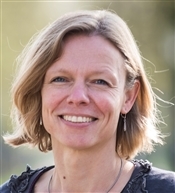
Utrecht University
The Netherlands
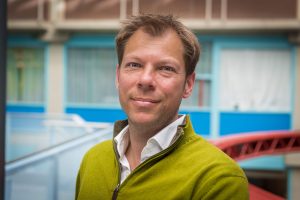
Amsterdam UMC
The Netherlands
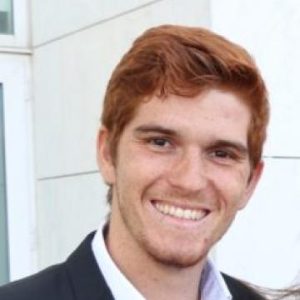
Ghent University
Belgium

Ghent University
Belgium

University of Gothenburg
Sweden

Utrecht University
The Netherlands
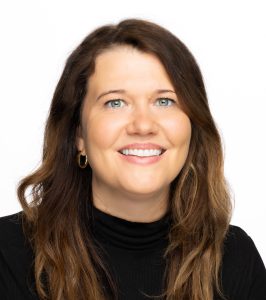
Course and Conference Officer
EMBL Heidelberg
Germany

Training Lab Technician
EMBL Heidelberg
Germany
Are you on social media? Post using #EMBOEVs and don’t forget to tag @EMBLEvents.
| Timings | Session | Location |
| 15:30-16:00 | Arrival at Hotel ISG | Hotel ISG |
| 16:00-16:30 | Welcome and housenotes | Hotel ISG |
| 16:30-18:00 | All group activity: flash talks (2mins per participant) and icebreaker (challenges and expectations) With flexible coffee break | Hotel ISG |
| 18:00-19:00 | Lecture: An Hendrix: Heterogeneity in EV methods | Hotel ISG |
| 19:00 – onwards | Dinner and Networking | Hotel ISG |
| Timings | Session | Location |
| 08:45- 09 00 | Transfer to EMBL from ISG Hotel | |
| 09:00 – 09:15 | Overview of the day and lab safety – An Hendrix Introduction of speakers | Courtyard room |
| 09:15 – 09:45 | Lecture: Edit Buzas: Heterogeneity in EV subtypes | Courtyard room |
| 09:45-10:00 | Q&A of previous lecture | Courtyard room |
| 10:00 – 10:30 | Coffee break | Courtyard room |
| 10:30-11:00 | An Hendrix: Introduction to practicals and preparation methods | Training Lab A&B |
| 11:00-12:00 | Practical 1: Fluorescent labelling of EVs (An Hendrix, Claudio Pinheiro, Esther Nolte-‘t-Hoen, Estfania Lozano-Andres, Cecilia Lässer, Markus Bergqvist) | Training Lab A&B |
| 12:00-13:00 | Lunch | Canteen |
| 13:00-13:30 | Lecture: Lorena Martin-Jaular: Fluorescent labelling of EVs | Courtyard room |
| 13:30-13:45 | Q&A of previous lecture | Courtyard room |
| 13:45-14:15 | Practical 1 (continued) (An Hendrix, Claudio Pinheiro, Esther Nolte-‘t-Hoen, Estfania Lozano-Andres, Cecilia Lässer, Markus Bergqvist) | Training Lab A&B |
| 14:15-16:45 | Practical 2: EV preparation using density gradients (An Hendrix, Claudio Pinheiro, Esther Nolte-‘t-Hoen, Estfania Lozano-Andres, Cecilia Lässer, Markus Bergqvist) | Training Lab A&B |
| 16:45-17:15 | Coffee break | Courtyard room |
| 17:15-17:45 | Lecture: Guillaume Van Niel: EV biogenesis | Courtyard room |
| 17:45-18:00 | Q&A of previous lecture | Courtyard room |
| 18:00-19:00 | Dinner | EMBL Canteen |
| Timings | Session | Location |
| 08:45- 09 00 | Transfer to EMBL from ISG Hotel | |
| 09:00-09:10 | Introduction of speakers | Courtyard room |
| 09:10-09:40 | Lecture: Cecilia Lässer: Impact of pre-analytical factors on EV preparation and characterization | Courtyard room |
| 09:40-09:55 | Q&A of previous lecture | Courtyard room |
| 09:55-11:15 | Practical 3: EV preparation using size exclusion chromatography (An Hendrix, Claudio Pinheiro, Esther Nolte-‘t-Hoen, Estfania Lozano-Andres, Cecilia Lässer, Markus Bergqvist) Practical ONI (carried out by trainers): Surface Preparation CHIP demonstration | Training Lab A&B |
| 11:15-11:45 | coffee break ONI: Trainers continue | Courtyard room |
| 11:45-12:45 | Continue Practical 2: Collect and process fractions from density gradients (An Hendrix, Claudio Pinheiro, Esther Nolte-‘t-Hoen, Estfania Lozano-Andres, Cecilia Lässer, Markus Bergqvist) ONI: Washing step, Fixation, Blocking | Training Lab A&B |
| 12:45-13:45 | lunch | EMBL Canteen |
| 13:45-14:15 | Lecture: Andre Gorgens: Single EV analysis | Courtyard room |
| 14:15-14:30 | Q&A of previous lecture | Courtyard room |
| 14:30 – 15:45 | Practical 4: Particle analysis (Nanoparticle tracking analysis (Malvern), super resolution microscopy (ONI), flow cytometry (BD)) (An Hendrix, Claudio Pinheiro, Esther Nolte-‘t-Hoen, Estfania Lozano-Andres, Cecilia Lässer, Markus Bergqvist) Rotation 1 | Training Lab A&B |
| 15:45- 16:15 | Coffee break | Courtyard room |
| 16:15- 17:30 | Practical 4: Particle analysis (Nanoparticle tracking analysis (Malvern), super resolution microscopy (ONI), flow cytometry (BD)) (An Hendrix, Claudio Pinheiro, Esther Nolte-‘t-Hoen, Estfania Lozano-Andres, Cecilia Lässer, Markus Bergqvist) Rotation 2 | Training Lab A&B |
| 17:30- 18:45 | Practical 4: Particle analysis (Nanoparticle tracking analysis (Malvern), super resolution microscopy (ONI), flow cytometry (BD)) (An Hendrix, Claudio Pinheiro, Esther Nolte-‘t-Hoen, Estfania Lozano-Andres, Cecilia Lässer, Markus Bergqvist) Rotation 3 | Training Lab A&B |
| 18:45 – 19:45 | Tapas dinner | EMBL Canteen |
| 19:45- 21:45 | POSTER SESSION I with drinks | Top of Helix B and ATC Rooftop lounge |
| 21:45 | Bus to ISG hotel |
| Timings | Session | Location |
| 08:45- 09 00 | Transfer to EMBL from ISG Hotel | |
| 09:00-09:10 | Introduction of speakers | Courtyard room |
| 09:10-10:45 | Data analysis of NTA and Flow data | Courtyard room |
| 10:45-11:15 | coffee break | Courtyard room |
| 11:15-11:45 | Lecture: Guillaume Van Niel: EV characterization by transmission electron microscopy and western blot analysis | Courtyard room |
| 11:45-12:00 | Q&A of previous lecture | Courtyard room |
| 12:00-13:00 | Lunch | EMBL Canteen |
| 13:00-13:30 | Lecture: Esther Nolte’t-Hoen: EVs in bacterial, parasitc and viral infections | Courtyard room |
| 13:30-13:45 | Q&A of previous lecture | Courtyard room |
| 13:45 – 17:15 3 groups rotating (60 min per group) | Practials 5,6,7 in parallel 3 groups rotating Group 1: EM Preparation Maribel Lara-Corona (training lab) Group 2a: EM Imaging remote Guillaume Van Niel (EM facility) Group 2b: EM Imaging remote Mickael Couty (EM facility) Group 3: EV-TRACK analysis An Hendrix, Claudio Pinheiro, Quentin Roux (Virtual) | Training Lab A&B |
| 17:15 – 19:15 | Poster session II with drinks | Top of Helix B |
| 19:15 – 20:15 | Pizza dinner | Rooftop lounge |
| 20:15 | Bus to ISG |
| Timings | Session | Location |
| 08:45 – 09 00 | Transfer to EMBL from ISG Hotel | |
| 09:00-09:10 | Introduction of speakers | Courtyard room |
| 09:10-09:40 | Lecture: Suresh Mathivanan: Proteomics | Courtyard room |
| 09:40-09:55 | Q&A of previous lecture | Courtyard room |
| 09:55-11:15 | Practical 8: Bio-informatics (Suresh Mathivanan) | Training Lab A&B |
| 11:15-12:15 | Software tutorial (superresolution microscopy (ONI))and data analysis | Training Lab A&B |
| 12:15-13:15 | Lecture: Michiel Pegtel: In vivo function of EVs | Courtyard room |
| 13:15-13:45 | Lecture: Cláudio Pinheiro: Transcriptomics | Courtyard room |
| 13:45-14:00 | Q&A of previous lecture | Courtyard room |
| 14:00-14:30 | Lecture: Alicia Llorente: Lipidomics | Courtyard room |
| 14:30-14:45 | Q&A of previous lecture | Courtyard room |
| 14:45-17:15 | Data analysis in groups | Training Lab A&B |
| 17:15-17:45 | Lecture: Olivier De Wever: Preparation of EVs from different biofluids | Courtyard room |
| 17:45-18:00 | Q&A of previous lecture | Courtyard room |
| 18:00 – 22:00 | Course dinner with social activity | Downtown dinner TBC |
| Timings | Session | Location |
| 08:45- 09 00 | Transfer to EMBL from ISG Hotel | |
| 09:00-09:10 | Introduction of speakers | Courtyard room |
| 09:10-11:00 | Data analysis in groups | Training Lab A&B |
| 11:00-11:30 | Lecture: Mario Gimona: EV clinical applications | Courtyard room |
| 11:30-11:45 | Q&A of previous lecture | Courtyard room |
| 11:45-12:15 | Lecture: Michiel Pegtel: In vivo function of EVs | Courtyard room |
| 12:15-12:30 | Q&A of previous lecture | Courtyard room |
| 12:30-14:30 | Meet the expert with lunch (ATC Rooftop lounge/Foyer) | ATC Rooftop Lounge |
| 14:30-15:00 | Debrief by organisers, feedback and close | Courtyard room |
| 15:00 | Shuttle bus to Heidelberg downtown (train/bus station) |
The course is limited to 24 participants. For selection purposes, please note that your application will not be considered without a letter of motivation.
Registration fees (include admission and all course materials):
| Academia | €500 |
| PhD Student | €500 |
| Industry | €1,100 |
The registration fee should be paid only after acceptance to the course. The results will be announced approximately 2-3 weeks after the application deadline.
After you have logged in and successfully registered, you will receive an email asking you to submit your motivation letter. Click on the link provided and enter your motivation letter in the text box provided. Alternatively you can submit your motivation letter by clicking on the link on the confirmation page directly after registering.
Instructions
Please note:
For detailed instructions, please watch our video on how to submit a course motivation letter.
For further information about registration and motivation letter submission please refer to the FAQ page.
Limited financial assistance is provided by the EMBL Advanced Training Centre Corporate Partnership Programme and EMBO in the form of registration fee waivers and childcare grants.
Your place in the meeting is only confirmed by paying the registration fee, which is mandatory even when receiving a fee waiver.
The fee waiver will cover the registration sum that you have paid to attend the course.
There is the possibility to apply for a childcare grant to offset child care costs incurred by participants, speakers, trainers and organisers when attending a course. Eligible costs include (but are not limited to) fees for a babysitter or child-care facility and travel costs for a caregiver. Please note that priority will be given to early-stage researchers. There is a limited amount of funding available for the childcare grants and funds will be distributed amongst eligible applicants.
Applies to selected courses only. Availability will be indicated during the abstract or motivation letter submission process.
This grant covers costs related to your attendance to the course (registration, travel and accommodation costs). The grant is restricted to PhD students and postdocs who conduct basic biomedical research.
Whether you are eligible to apply for a travel grant, depends on when you received your university entrance qualification (e.g. Abitur, A-Levels, High School Diploma, Final State Examination):
– for PhD and MD students, as well as graduates, the university entrance qualification must not have been obtained more than 11 years ago at the time of the envisaged course
– for postdocs, the university entrance qualification must not have been obtained more than 13 years ago at the time of the envisaged course
If you are attending virtually, you can apply for financial assistance in the submission portal by the abstract deadline. Read the instructions on how to apply for financial assistance. Only submissions for financial assistance will be accepted. Presentation abstracts cannot be submitted here and will be declined.
In your application you will be asked to summarise your current work, answer questions regarding why your lab cannot fund your attendance, and how your attendance will make a difference to your career. Application for financial support will not affect the outcome of your registration application.
*For some events, applications for Childcare Grants will still be done by email. Information about the grant will be sent out shortly after the abstract/motivation letter deadline. Please contact the event Conference Officer if you have any questions.
The scientific organisers will select the recipients of registration fee waivers during the participant selection process for courses. Results will be announced approximately 6 – 8 weeks before the event start date, however for some events this may be delayed. Selection results do not impact your admission to the meeting. Selection for registration fee waivers and travel grants is based on scientific merit, your current work or study location, the reasons for needing financial support, and the impact this event will have on your career.
Childcare grants will be allocated in the same timeframe (6-8 weeks before the event start date). Please note that priority will be given to early-stage researchers.
Check out this list of external funding opportunities or get more information on attending the conference as an event reporter.
For further information about financial assistance please refer to the FAQ page.
Accommodation has been pre-booked for you at the ISG Hotel for the default dates of Saturday 22 February to Friday 28 February 2025 (6 nights).
Please note that the course registration fee includes coverage of accommodation costs in twin rooms, including breakfasts, for your stay at the ISG. In case you would like to have a single room, please let us know and please note that you will be required to pay an additional cost of 24€ per night. This should be paid by you directly to the ISG during your stay. Any additional nights need to be booked and paid for by you.
We recommend that all course participants stay at the ISG Hotel which is the dedicated hotel for the course.
For travel information, please see here.
If you are travelling to the conference within Germany then you are eligible for the Deutsche Bahn ‘Event Ticket’ (called the ‘Veranstaltungsticket’ in German). This will result in a lower ticket price if your travel distance to Heidelberg is more than 100 km. You need to provide proof of your event attendance when purchasing the ticket.
For more information in English see here or in German see here.
You can book your ticket here.
Shuttle buses will go from the ISG Hotel to EMBL and back, mornings and evenings. A bus schedule and location of the bus stops will be made available prior to the meeting.
Address: EMBL Heidelberg, Meyerhofstraße 1, 69117 Heidelberg, Germany
For more information about accommodation and travel, please refer to the FAQ page.
All meals and coffee breaks are included in the registration fee. Our catering staff will prepare a wide variety of vegetarian meals, meat and fish dishes, soups, pasta, fresh fruit and vegetables, as well as a variety of desserts.
Please wear your badge at all times when serving yourself.
No food or drinks are allowed in the laboratories.
In most places the electricity is 220 volts AC (50 cycles). An adaptor and a plug that fits the German socket may be needed for your appliances/laptop (i.e. American, Japanese, etc.). A USB charging station for electronic devices is available at the registration desk..
If you are interested in purchasing EMBL merchandise (products presented in the glass display in the registration area), please email the EMBL shop to place an order or get in contact with your Course Organiser.
Kindly note the EMBL shop is only open upon request and all purchases must be made in cash (Euros only).
Please read EMBL’s COVID-19 safety policy for on-site events.
Do not smoke in any EMBL building.
Eating and drinking is prohibited in all laboratories.
Do not enter any restricted areas or the laboratories unless instructed to do so.
If first aid is required …
In case of fire …
Beyond first aid…
Please remember to bring your own medication, if needed, to the conference. Note that the next pharmacy is a 4-minute drive from the EMBL, but for many medications you will be required to see a doctor to get a prescription.
Ensure in advance that your medical insurance will cover you during your visit in the event that you do need to see a doctor while in Heidelberg. In any case, the EMBL Course and Conference Office will assist you to get to the pharmacy and a doctor of your choice if necessary.
Wi-Fi is available on campus. Log in using the EMBL-Events network and the event specific password, which will be provided on site. The eduroam network (secure, worldwide roaming access service developed for the international research and education community) is also available.
‘’Lost and Found’’ items are kept at the registration desk until the end of the conference.
There are lockers available on-site to store your luggage, which require a 2 EURO coin to operate. There is another luggage room on level E0, which is free to use but remains unlocked during the conference.
There is a nursing room available in the ATC Rooftop Lounge on level A29.
During the conference, an EMBL Photographer may be taking photos. If you would not like to appear in these, please inform the photographer or a member of the Course and Conference Office.
We can help to print your boarding pass/train ticket. Please send it to events@embl.de and collect your print-outs at the registration desk.
There is a room for prayer, meditation, and yoga located on level E0 behind the Auditorium. Please be respectful of others using the room.
A variety of activities in Heidelberg can be found on the website of Heidelberg Marketing.
During the event, we provide conference shuttle buses to and from EMBL. In addition, there is the public bus 39A that serves the EMBL campus and taxis can be easily booked at any time. Information on the shuttle buses can be found on the individual event website and more detailed information on travelling to EMBL can be found on our Travel Information page.
Additional information can be found in our Code of Conduct.
It is important to stay healthy and move around, especially when you are attending an event virtually. We have put together a few coffee break stretches and yoga videos in eCampus for you to enjoy during the event.
Questions during and after the talks can be asked in the live streaming platform. If time runs out or you think of a question later, you can use the EMBL eCampus forum or send a direct message to the speaker/trainer.
The programme is planned based on the Europe/Berlin time zone, unless otherwise stated. As many virtual participants are attending from around the world, we do our best to accommodate as many time zones as possible when creating the programme. Please take your time zone into consideration when planning your attendance.
Please find additional information including FAQs and terms and conditions on our Information for Participants page.
Event partners
Event sponsors
Event supporters
Sponsorship opportunities
We offer a variety of event sponsoring possibilities, with the flexibility to select a set sponsorship package or combine individual sponsorship options to suit your event budget. Discounts are available for companies sponsoring multiple events at EMBL Heidelberg. View other conferences, or contact sponsorship@embl.de for further information on sponsoring possibilities.
If you are interested in becoming a media partner of this event, please visit our media partnerships webpage.
EMBL wishes to warn sponsors of EMBL conferences and courses of fraudulent schemes purporting to offer sponsorship opportunities on behalf of EMBL or affiliated with EMBL officials. One current scam campaign of which we are aware is conducted using the name ‘Judy Eastman’ (judy@gopcontact.a2hosted.com) and entails approaches to sponsors offering sponsorship opportunities on EMBL’s behalf. Please be kindly advised that all relevant communication regarding sponsorship of EMBL conferences, symposia and courses is handled by EMBL directly and is sent from an official EMBL account. EMBL does not work with any external providers on sponsorship acquisition.
Please also note that:
Suspicious communications purportedly from, for or on behalf of EMBL should be reported to EMBL at the following email address sponsorship@embl.de.
Want to let others know you’re attending this event? Take a look at our shareable media and feel free to use them in your social media channels or presentations.

Date: 23 - 28 Feb 2025
Location: EMBL Heidelberg
Venue: EMBL Advanced Training Centre
Organisers:
Contact: Charlotte Courtney